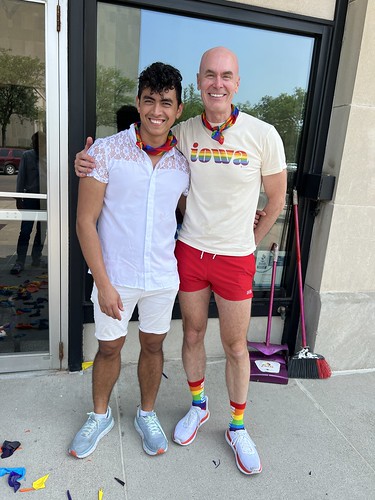New rules for LGBTQ students unfairly target vulnerable children | Opinion
LGBTQ #LGBTQ

I applaud the school boards of South Florida for doing what they can to lessen the impact of new state rules regarding LGBTQ issues in the classroom. At the same time, I am terrified by the repercussions that will likely follow these new guidelines.
While It might sound hyperbolic, these new policies may possibly result in significant trauma for LGBTQ students and in some cases could possibly even lead to death.
According to the Sun Sentinel, the Broward guide states: “For parents/guardians/caregivers who have questions about their child’s sexual orientation and/or gender identity and have contacted the school or district, faculty and staff must not intentionally withhold information about their child’s identity unless a reasonably prudent person would believe that disclosure would result in abuse, abandonment or neglect, as those terms are defined by the law.”
 Randy Fair taught English in Fulton County, Georgia schools for 31 years.
Randy Fair taught English in Fulton County, Georgia schools for 31 years.
On the surface, this sounds like a reasonable accommodation. Many probably feel that parents should have the right to know about anything concerning their children. However, it is not as simple as it seems. Teachers can’t possibly know when revealing this information would lead to harm.
In my 31-year career as a teacher, I have had numerous situations in which students felt the need to come out to a trusted adult but for various reasons feared their parents finding out. Mormon students who worried that they would be excommunicated from the church and their community. Arabic students who were afraid they would be killed, not by a homophobic stranger, but by a member of their family. Evangelical Christians who dreaded conversion therapy.
I have seen parents in some of the groups mentioned above who have opened their arms to their LGBTQ children and others who refused to accept the child once the child came out. How can any teacher predict which of these parents will be helpful and which will be harmful?
Equally problematic are the new rules regarding pronoun usage. The Broward guide says that even if a parent asks that a preferred pronoun be used, teachers and staff can disregard this preference.
I have seen firsthand the devastating consequences of lack of respect for preferred pronouns. The first transgender student I was aware of was a student in my ninth-grade class. He had been born female, but identified as male.
Because he dressed in what is considered to be traditional male clothing and had a gender non-specific legal name, the other students accepted him as male. One day, he was needed in the office, and when the secretary called for him over the intercom, she said, “Could you please send her to the office?”
The other students looked around in shock and suddenly began questioning the student’s gender identity. When bullying started to occur, this student became suicidal for the first time in his life.
It is difficult for me to believe that we have come to a place where the political viewpoint of some has made them so meanspirited that they are willing to inflict trauma on vulnerable youth.
While the students are of course the main subject of concern, these laws also place the teachers and staff in untenable situations. The vagueness of these laws makes it impossible for faculty members to know how to handles these situations. Even if the staff knew exactly what to do, they are still going to struggle to reconcile the law with their own sense of morality,
Most good teachers will know that placing some of the most vulnerable students in the school system in harms way cannot be right, even if it is the law.
Randy Fair lives in Wilton Manors and is the author of “Southern. Gay. Teacher.” He has a Ph.D. from Georgia State University and taught high school for 31 years in the Fulton County School system. He was the co-founder of the Atlanta chapter of the Gay Lesbian Straight Teachers Network.